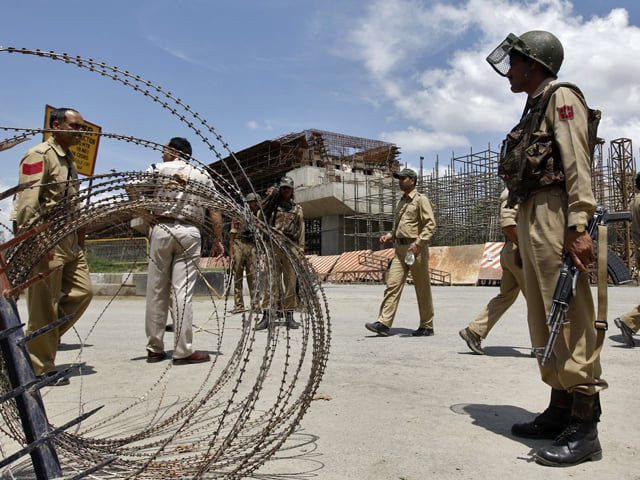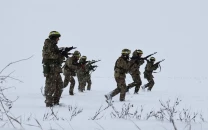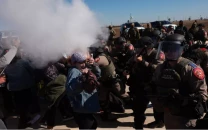Study names alleged Indian Kashmir rights abusers
Study examines killings, disappearances, torture and rape cases allegedly committed by government forces.

The 354-page investigation by two local rights groups, which draws on state documents obtained under freedom of information laws, alleges widespread disappearances, murders and torture.
The heavily militarised Muslim-majority region bordering Pakistan has been subject to a separatist insurgency and fierce government crackdowns for the last two decades, with abuses by both sides thought to be widespread.
The study, a blow to the image of the world's biggest democracy, examined more than a hundred killings, 65 disappearances, 59 cases of torture and nine rapes allegedly committed by government forces from 1990 to 2011.
"By naming names, the report seeks to remove the veil of anonymity and secrecy that has sustained impunity," said the report, which was released in Kashmir on Thursday.
"What is striking is that the documents in possession of the state itself indict the armed forces and the police by providing reasonable, strong and convincing evidence on the role of the alleged perpetrators in specific crimes."
The Indian army still benefits from the Armed Forces Special Powers Act, a draconian piece of legislation introduced in 1990 to quell the insurgency which offers legal impunity and rights to kill suspects and seize property.
The two groups behind the report are the International People's Tribunal on Human Rights and Justice in Indian-Administered Kashmir (IPTK) and the Association of Parents of Disappeared Persons (APDP).
Gautam Navlakha from IPTK said the study was "just a tip of iceberg and yet a window into what took place in the last 22 years and the reign of impunity that persists."
In the cases examined, the groups name 500 alleged perpetrators, including 235 Indian army members, 123 Indian paramilitary personnel, 111 police officers and 31 government-backed militants or associates.
It also names two army generals, three brigadiers and senior serving and retired police chiefs.
The army and government declined to comment on the report.
United Nations rights officials have repeatedly raised problems in Indian Kashmir, calling on the government to repeal emergency legislation now that violence has waned and investigate alleged violations.
Militant attacks are at their lowest ebb since the start of the insurgency, but the army and defence minister are staunchly resisting any removal of the Armed Forces Special Powers Act.
Last year, a local human rights group discovered mass graves of more than 2,000 unidentified bodies, alleging that many of them were people who had disappeared after being arrested by security forces.
Kashmir is carved in two by a de facto border and is jointly administered by India and Pakistan, who have fought two of their three wars over the picturesque Himalayan region.



















COMMENTS
Comments are moderated and generally will be posted if they are on-topic and not abusive.
For more information, please see our Comments FAQ